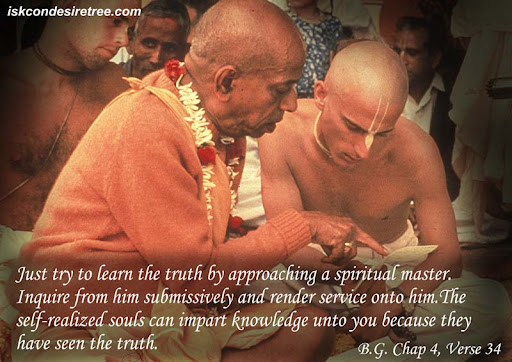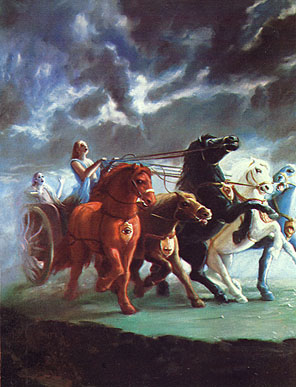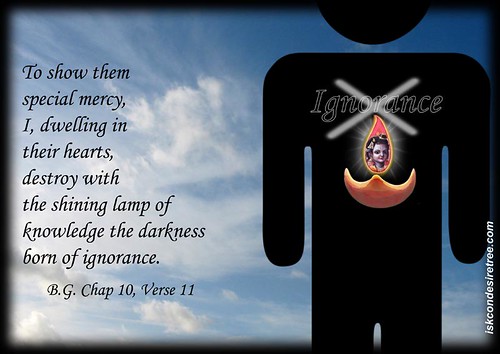
So it is not that devotees are sentimental. It is not that. Bhaktya sruta-grhitaya. Bhakti devotional service, after complete Vedic literature understanding... But bhakti is nice thing that if one takes to bhakti directly, he understands Vedic version automatically.
vasudeve bhagavati
bhakti-yogah prayojitah
janayaty asu vairagyam
jnanam ca yad ahaitukam
[SB 1.2.7]
This is Krsna's mercy. Even one is illiterate, if he sincerely takes to bhakti-yoga, so Vedic philosophical conclusion automatically awakens.
yasya deve para bhaktir
yatha deve tatha gurau
tasyaite kathita hy arthah
prakasante mahatmanah
[SU 6.23]
These are the statement, and actually... Just like these boys. These boys, they were not educated in Vedic literature, never. But how they have taken to this Krsna consciousness? This is the magic of Krsna consciousness. It is not dependant on studying of Vedas, but if you take seriously to Krsna consciousness, the Vedic knowledge is automatically awakened. This is the secret. If one has unflinching faith in Krsna and unflinching faith to his spiritual master, then automatically the Vedic knowledge becomes awakened.

This is a fact, you can see. They never knew what is Vedic life, Vedic knowledge, but how they have become so nice perfect devotee? That unflinching faith. That is required. Visvase milaya vastu tarke bahu-rupa.[?] And that visvasa, that is explained, visvasa, faith, in the Caitanya-caritamrta, visvasa-sabde, visvasa sudrdha niscaya, krsne bhakti kaile sarva-karma krta. Sraddha-sabde visvasa sudrdha niscaya. This is statement of Krsnadasa Kaviraja Gosvami. He said, sraddha. Because to become a devotee, the begin is sraddha faith.
Just like you all ladies and gentlemen, you are coming. It is the sraddha, "Let us hear something, what they are speaking about Krsna." This is the beginning. So this sraddha, as it grows and becomes firmly fixed up, that is devotion. Sraddha means, devotion means, gradually making the sraddha more and more fixed up. Adau sraddha. Adau sraddha tatah sadhu-sanga. First of all sraddha, faith. Then association with the devotee. Atha bhajana-kriya tato 'nartha-nivrttih syat tato nistha rucis tatah, athasaktis tato bhavah. Bhava. So we have to come to the stage of bhava. Budha bhava-samanvitah. Krsna says,
aham sarvasya prabhavo
mattah sarvam pravartate
iti matva bhajante mam
budha bhava-samanvitah
[Bg. 10.8]
So this bhava, the ecstatic stage of devotional service, one has to reach. That is the perfection, or that, the priority stage of love of Godhead.
So these things are recommended. Krsna is personally explaining. Why should we not take advantage of these things? Why we are neglecting? It is suicidal. The Supreme Personality of Godhead is personally instructing how to become Krsna conscious, how to become perfect in Krsna consciousness, and then, tyaktva deham punar janma [Bg. 4.9], then you can go back to home, back to Godhead. Why we should not take advantage of this opportunity? This is not very good. We should take advantage. We have got this human form of body. We have got intelligence. And the statement and explanation is being given by the Supreme Personality of Godhead personally. Why we should not take advantage? This is suicidal policy. Thank you very much. Hare Krsna. (end)
Srila Prabhupada Lecture :: VedaBase => Bhagavad-gita 4.28 -- Bombay, April 17, 1974















































